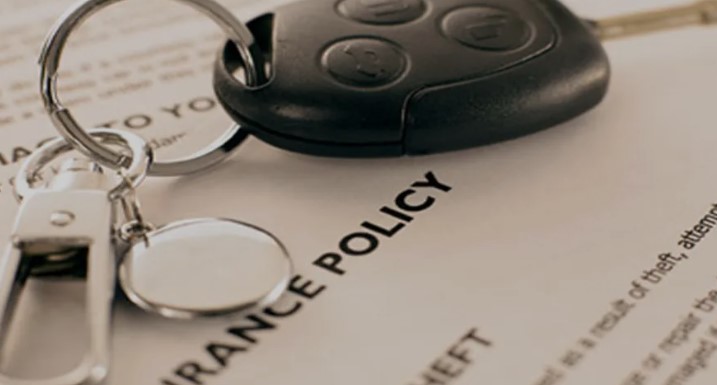The Impact of Your Driving Record on Car Insurance Rates
Introduction
Your driving record plays a crucial role in determining your car insurance rates. Insurance companies assess your past driving behavior to predict the likelihood of future claims. A clean record often leads to lower premiums, while a history of violations, accidents, or reckless driving can significantly increase costs. In this article, we will explore how different aspects of your driving record impact your insurance rates, the ways insurers calculate risk, and strategies to improve your record to secure better rates.
1. How Insurance Companies Assess Your Driving Record
Insurance providers use a variety of factors to determine the cost of your premiums. One of the most influential factors is your driving history, which includes:
• Traffic Violations: Speeding tickets, running red lights, and other moving violations.
• Accidents: At-fault accidents increase your risk level and raise your premiums.
• DUI/DWI Convictions: Driving under the influence leads to significant rate hikes and potential policy cancellations.
• License Suspensions: A suspended license due to reckless driving or other infractions negatively impacts your insurance eligibility.
• Number of Claims: Frequent insurance claims can lead to higher premiums, even if they weren’t your fault.
2. Clean Driving Record: The Key to Lower Premiums
A spotless driving record can significantly reduce your car insurance costs. If you have no traffic violations, accidents, or claims, you are considered a low-risk driver. Insurers reward such drivers with benefits like:
• Lower Premiums: Insurance companies offer the best rates to drivers with clean records.
• Safe Driver Discounts: Many insurers provide discounts to policyholders who maintain an accident-free record for a specified period.
• Lower Deductibles: Some insurers offer lower deductibles as a reward for safe driving.
3. The Impact of Traffic Violations on Insurance Rates
Even minor traffic infractions can have an impact on your insurance rates. Some common violations and their effects include:
• Speeding Tickets: A single speeding ticket may cause a slight increase in premiums, while multiple tickets can result in substantial rate hikes.
• Reckless Driving: Behaviors like aggressive driving or excessive speeding can significantly raise insurance costs.
• Running Red Lights or Stop Signs: These violations indicate risky behavior, leading to higher rates.
• Failure to Yield: Minor infractions like failing to yield the right of way can also affect your premiums.
How Much Will Rates Increase?
The exact rate increase depends on several factors, including the severity of the violation, your insurer’s policies, and state regulations. On average:
• Speeding Ticket: Increases premiums by 10-20%
• Running a Red Light: Can raise rates by 15-25%
• Reckless Driving: May cause a 50-100% increase
• DUI/DWI: Leads to a 100-300% increase or policy cancellation
4. Accidents and Their Effect on Insurance Costs
If you are involved in an accident, your insurance rates may increase, especially if you were at fault. Factors affecting the rate increase include:
• At-Fault vs. Not-At-Fault Accidents: At-fault accidents result in higher rate increases compared to accidents where you were not responsible.
• Severity of the Accident: A minor fender-bender may have a smaller impact compared to a major crash with injuries or extensive property damage.
• Claims History: Multiple claims, regardless of fault, can label you as a high-risk driver.
• Accident Forgiveness Programs: Some insurers offer accident forgiveness for first-time offenders, preventing a premium increase.
Rate Increase Estimates After an Accident
• Minor At-Fault Accident: 20-40% increase
• Major At-Fault Accident: 50-100% increase
• Multiple At-Fault Accidents: Premiums may double or triple
5. The Effect of DUI/DWI on Insurance Rates
A conviction for driving under the influence (DUI) or driving while intoxicated (DWI) has the most severe impact on car insurance rates. Consequences include:
• Dramatic Rate Increases: Insurance costs can double or triple after a DUI/DWI.
• High-Risk Insurance Classification: You may need to obtain an SR-22 or FR-44 certificate to prove financial responsibility.
• Policy Cancellation or Non-Renewal: Many insurance companies refuse to cover high-risk drivers with DUI convictions.
• Long-Term Consequences: A DUI remains on your record for several years (typically 5-10 years), affecting insurance costs during that period.
Estimated Rate Increase After DUI/DWI
• First DUI Offense: 80-150% increase
• Second DUI Offense: 150-300% increase or policy cancellation
• Third DUI Offense: Potential for permanent high-risk classification
6. License Suspensions and Their Impact
A suspended or revoked license due to reckless driving, excessive violations, or failure to pay fines significantly affects your insurance status. Consequences include:
• Higher Premiums: Once reinstated, you may face drastically higher insurance rates.
• Limited Insurance Options: Some insurers refuse coverage for drivers with past suspensions.
• Requirement for SR-22 Insurance: A special form proving financial responsibility may be required before reinstating your license.
7. Strategies to Improve Your Driving Record and Lower Insurance Rates
If you have a history of violations or accidents, you can take steps to improve your driving record and lower your premiums:
Short-Term Solutions:
• Take a Defensive Driving Course: Many insurers offer discounts for completing a state-approved course.
• Request Accident Forgiveness: Some companies provide this benefit to long-term policyholders with a clean record before an accident.
• Compare Insurance Quotes: Different insurers have varying policies on rate increases for violations.
Long-Term Solutions:
• Practice Safe Driving Habits: Avoid distractions, obey traffic laws, and maintain awareness on the road.
• Wait for Violations to Expire: Traffic violations usually remain on your record for 3-5 years, after which rates may decrease.
• Reduce Coverage on Older Vehicles: If you have an older car, consider switching to liability-only insurance to lower costs.
• Ask About Discounts: Some insurers offer discounts for low mileage, bundling policies, or using telematics devices to monitor safe driving.
8. Conclusion
Your driving record is one of the most critical factors influencing your car insurance rates. A clean record can help you secure lower premiums and discounts, while violations, accidents, and DUIs lead to higher costs and fewer coverage options. By practicing safe driving, addressing past infractions, and choosing the right insurance provider, you can effectively manage your insurance expenses and maintain affordable coverage. If you’ve had past infractions, consider taking proactive steps to improve your record and negotiate better rates over time.



